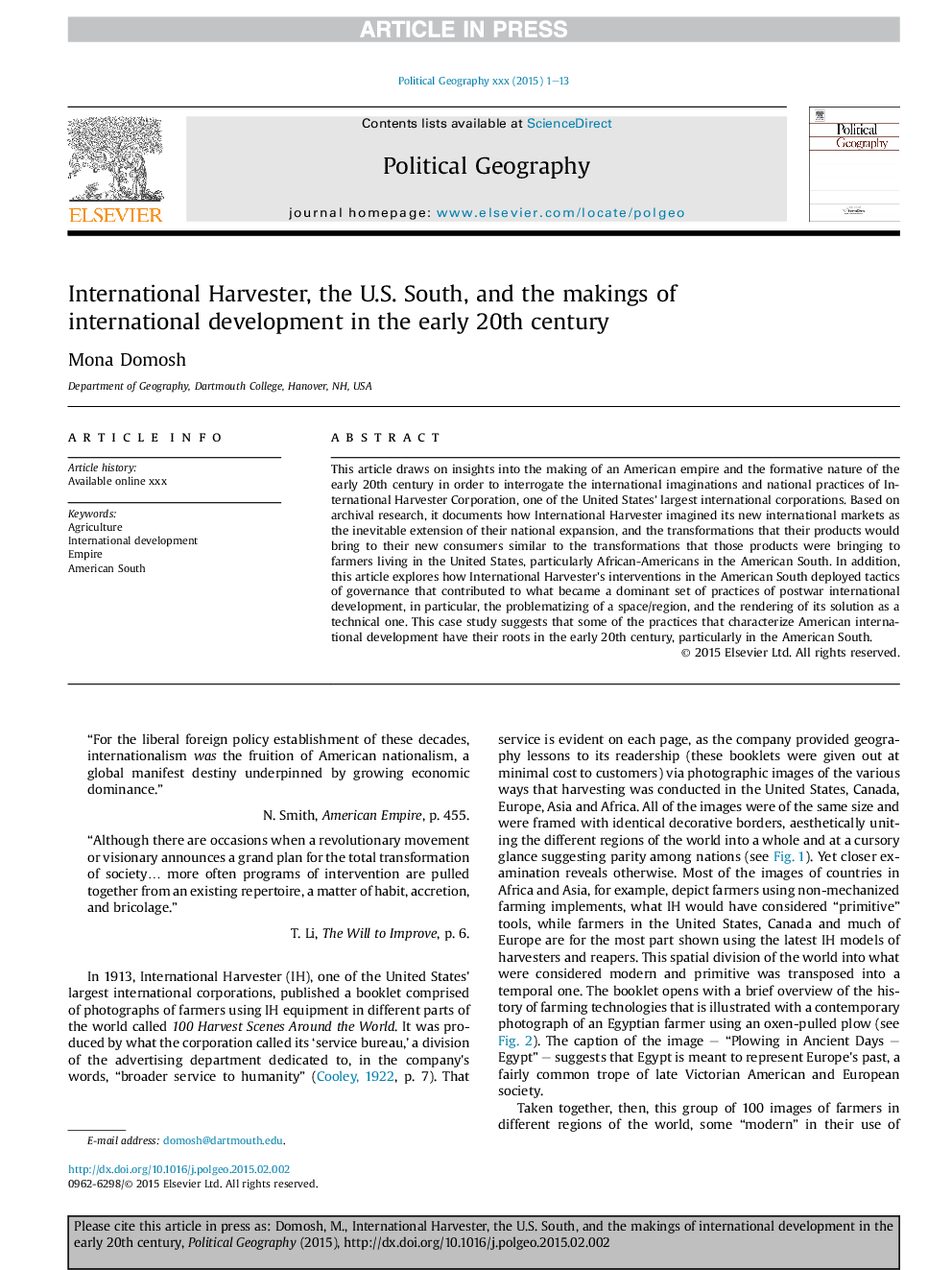| Article ID | Journal | Published Year | Pages | File Type |
|---|---|---|---|---|
| 7493101 | Political Geography | 2015 | 13 Pages |
Abstract
This article draws on insights into the making of an American empire and the formative nature of the early 20th century in order to interrogate the international imaginations and national practices of International Harvester Corporation, one of the United States' largest international corporations. Based on archival research, it documents how International Harvester imagined its new international markets as the inevitable extension of their national expansion, and the transformations that their products would bring to their new consumers similar to the transformations that those products were bringing to farmers living in the United States, particularly African-Americans in the American South. In addition, this article explores how International Harvester's interventions in the American South deployed tactics of governance that contributed to what became a dominant set of practices of postwar international development, in particular, the problematizing of a space/region, and the rendering of its solution as a technical one. This case study suggests that some of the practices that characterize American international development have their roots in the early 20th century, particularly in the American South.
Related Topics
Social Sciences and Humanities
Arts and Humanities
History
Authors
Mona Domosh,
